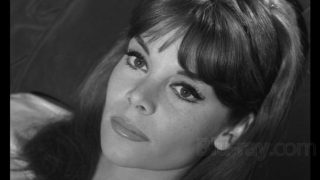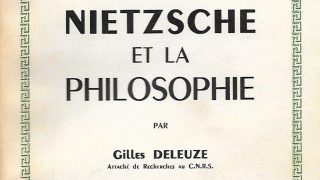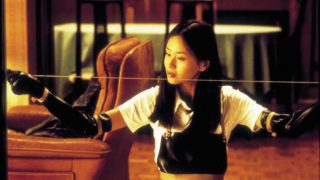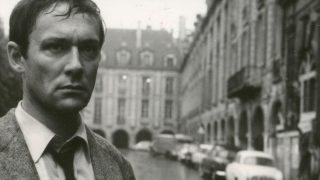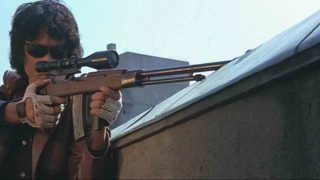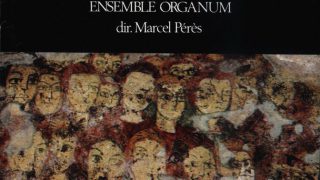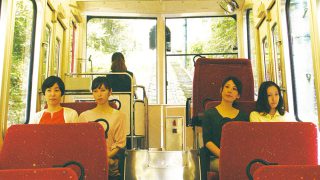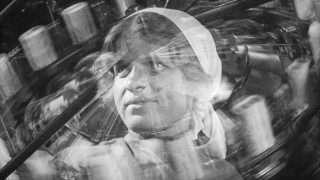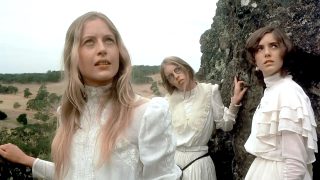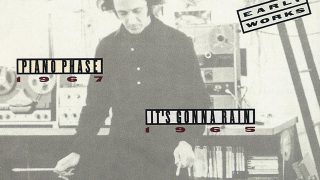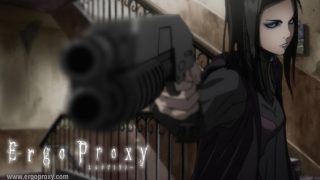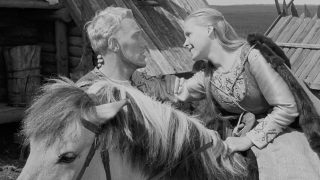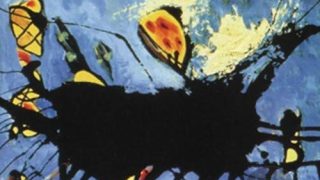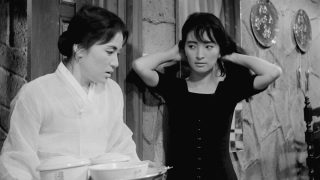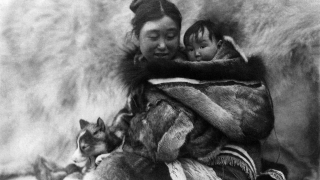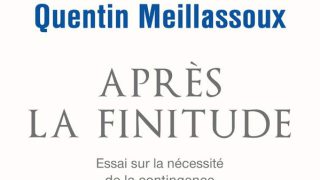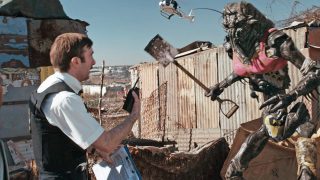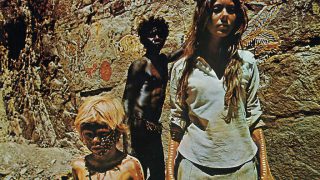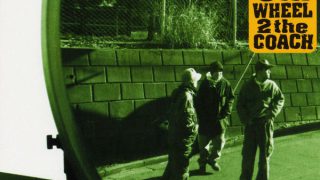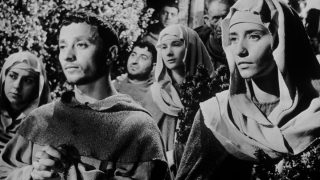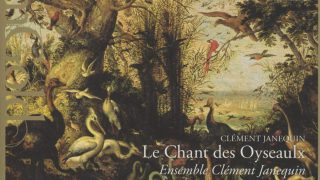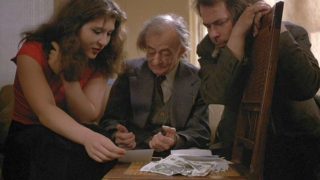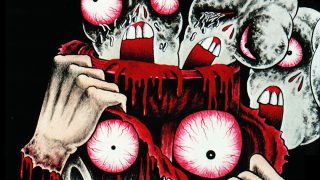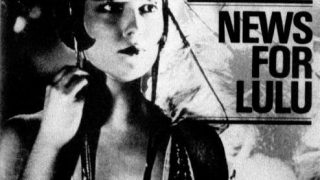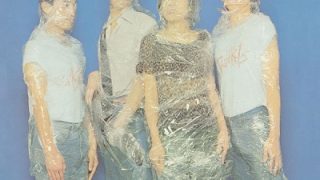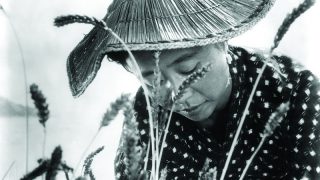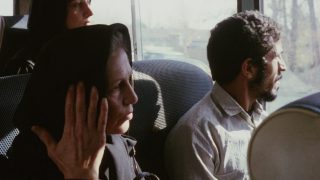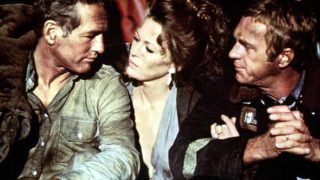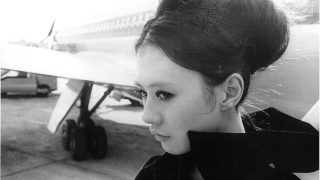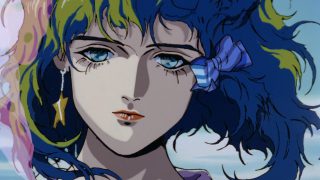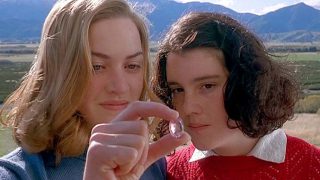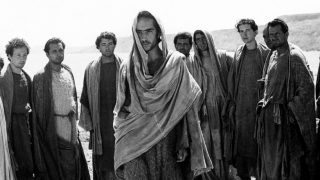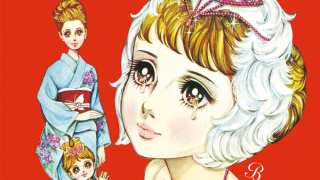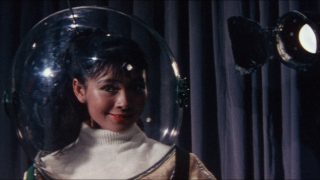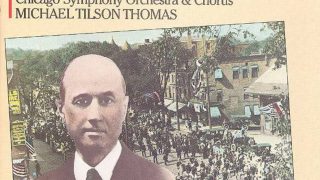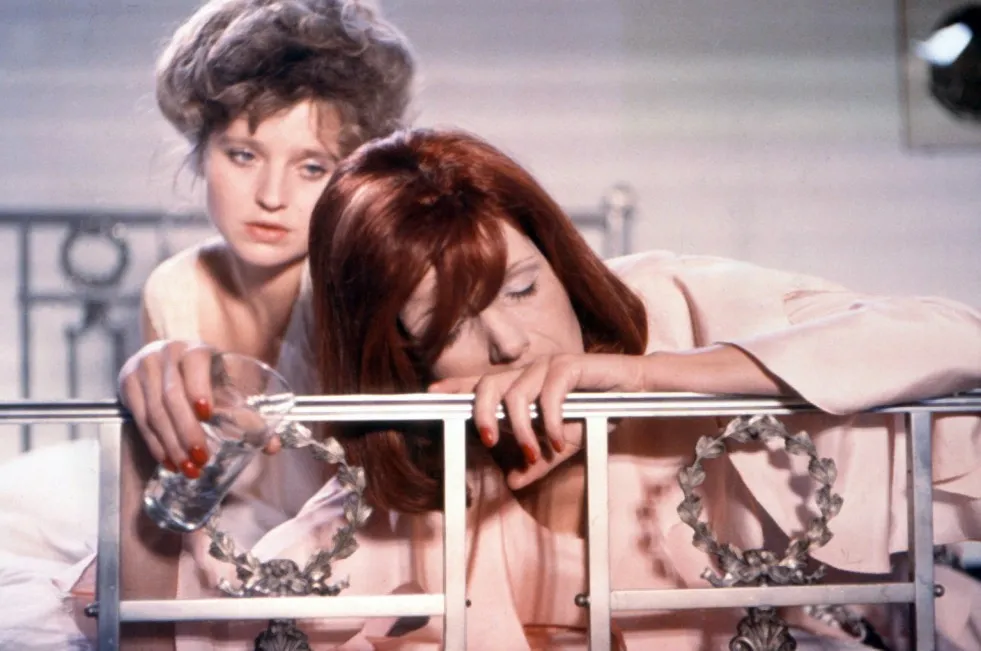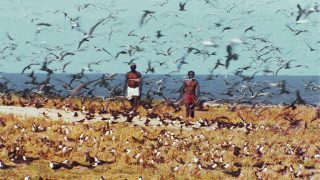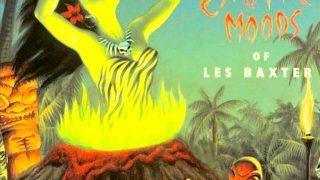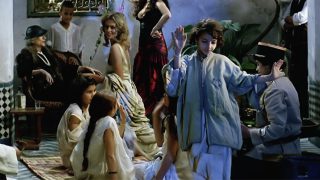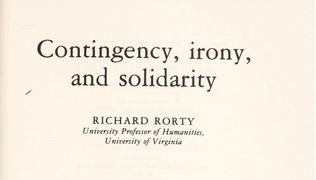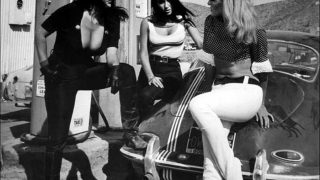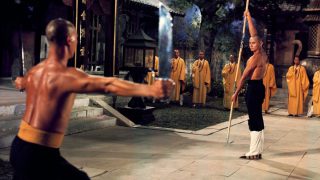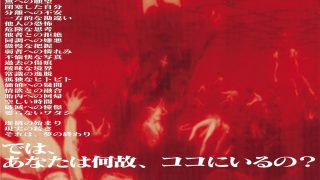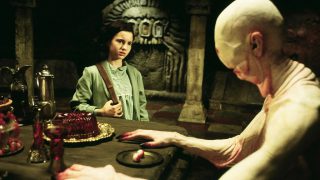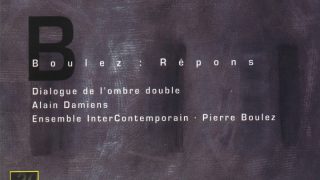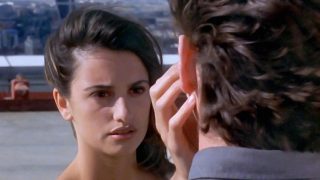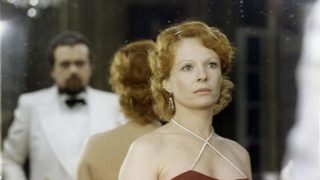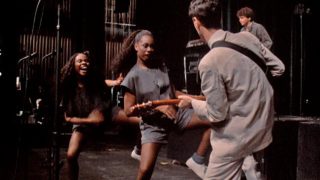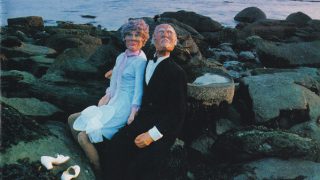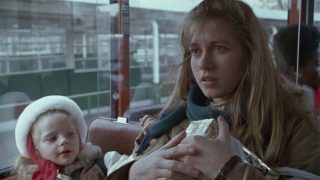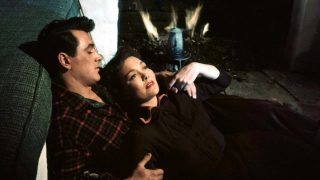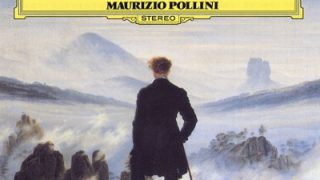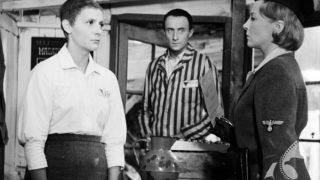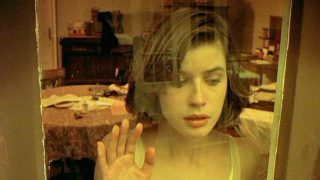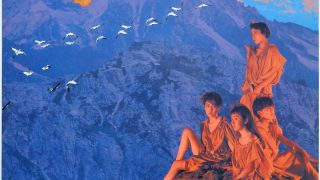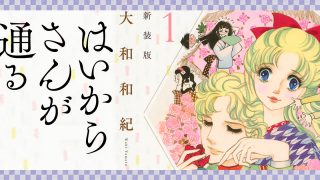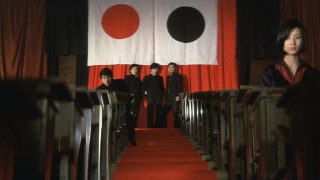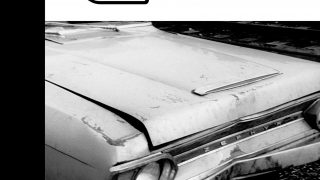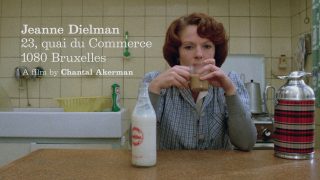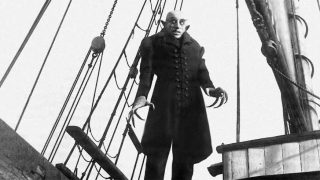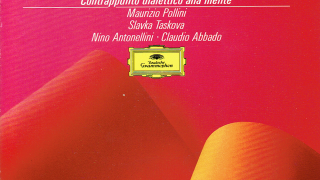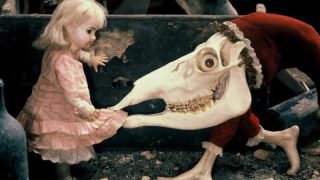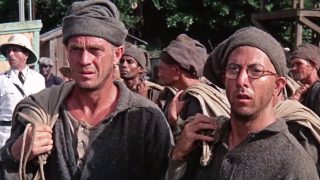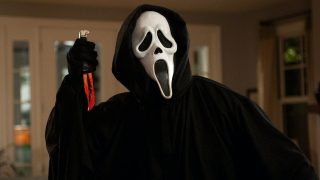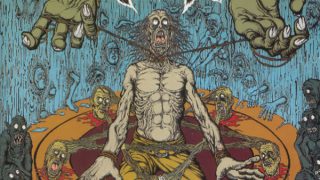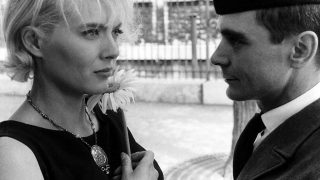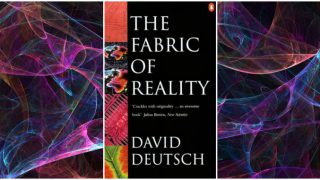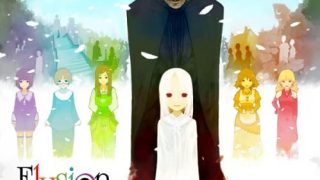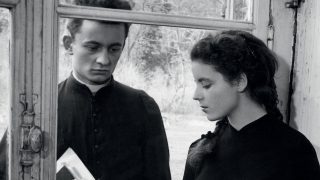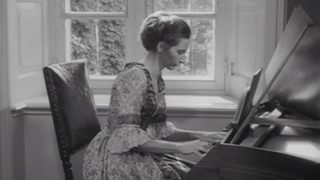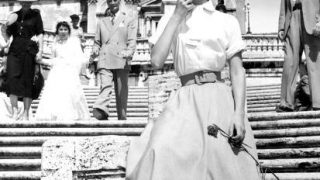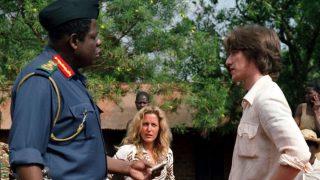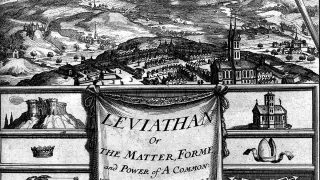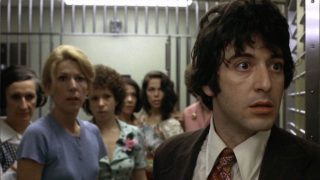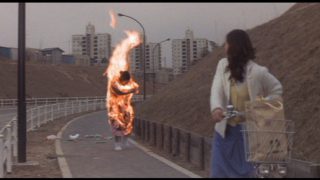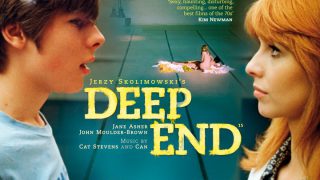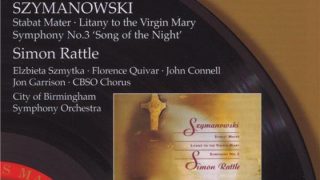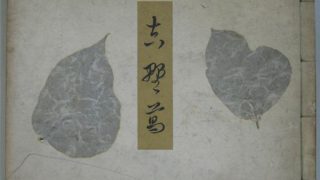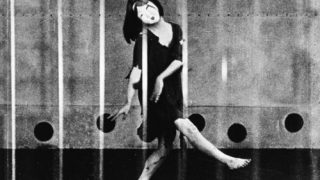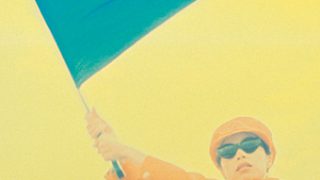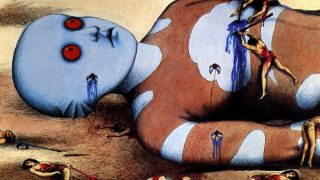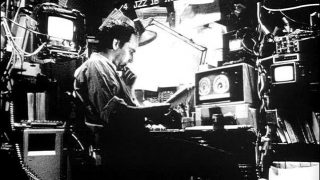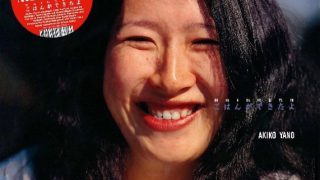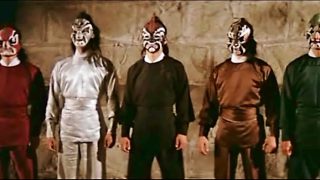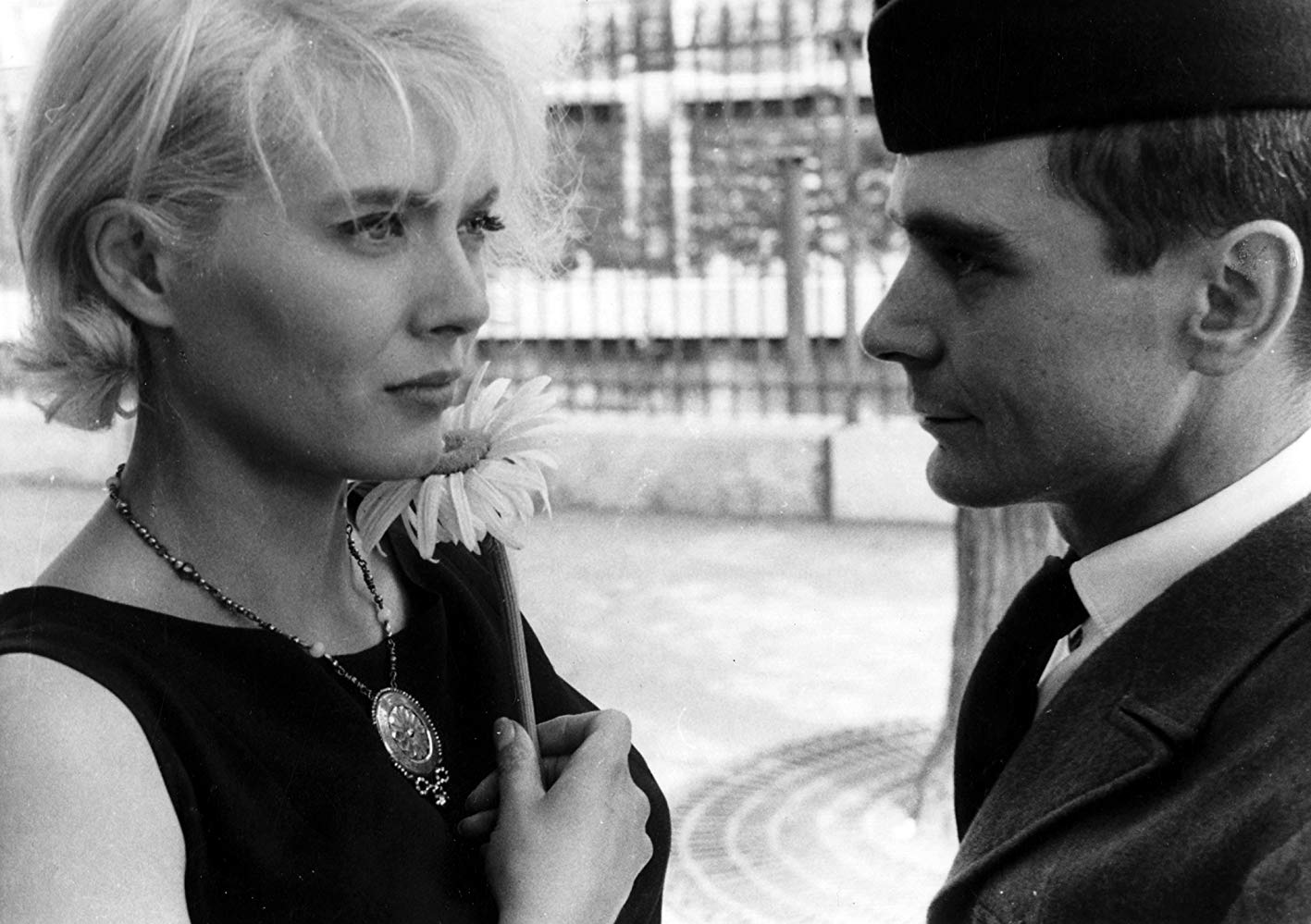Overview
“Cléo from 5 to 7 (Cléo de 5 à 7)” is a 1962 French–Italian drama film written and directed by Agnès Varda. It depicts a young pop singer who spends an hour and a half wandering in Paris with a fear of death until she hears the results of the test for cancer. Black & white (partially in color). 90 minutes.
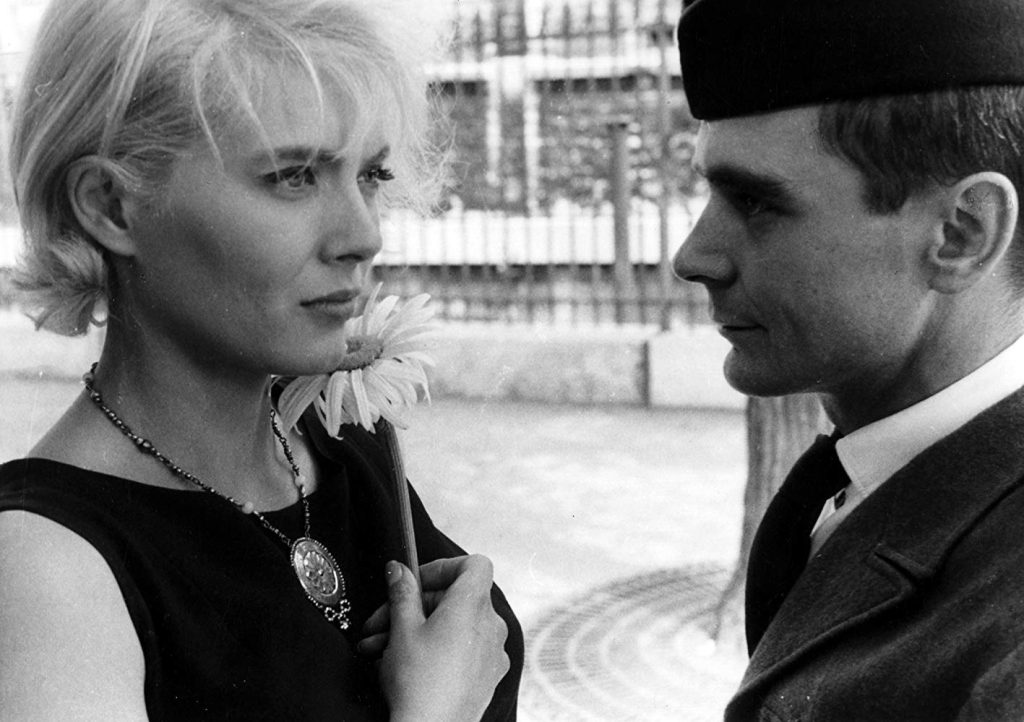
Commentary
“Cléo from 5 to 7” is famous as an early masterpiece of the French New Wave (La Nouvelle Vague) Left Bank films.
It is a documentary-style drama film that was shot on location at real places in Paris. The camera follows a woman who wanders in Paris for about an hour and a half in near real-time.
Only the shots of the tarot cards of the opening fortune-telling scene were shot in color, and others are all black and white.
The film score was composed by Michel Legrand, who also plays the role of the composer Bob.
In the film, Cléo feels alienated from being herself because she thinks that she is forced to play her role as a singer like a marionette. That makes it difficult for her to find life’s meaning. And, she cannot share her fear of death and angst with other people except for Antoine, who also faces his fear of death in war as a soldier. From this perspective, it is thought that the film reflects the theme of existentialism, that is to say, “the existential angst” of an individual person who has no choice but to be a solitary entity by nature.
The film was entered into the 1962 Cannes Film Festival.
The short film (a minute and a half) which Cléo and her friend Dorothée watched at the projection booth is an excerpt from the 1961 short film “Les Fiancés du pont Mac Donald ou (Méfiez-vous des lunettes noires)/The Fiancés of the Bridge Mac Donald” (5 minutes) directed by Agnès Varda. Jean-Luc Godard, Anna Karina, Sami Frey, Georges de Beauregard, Danièle Delorme, Yves Robert, Alan Scott, Jean-Claude Brialy, and Eddie Constantine appeared in the short film.
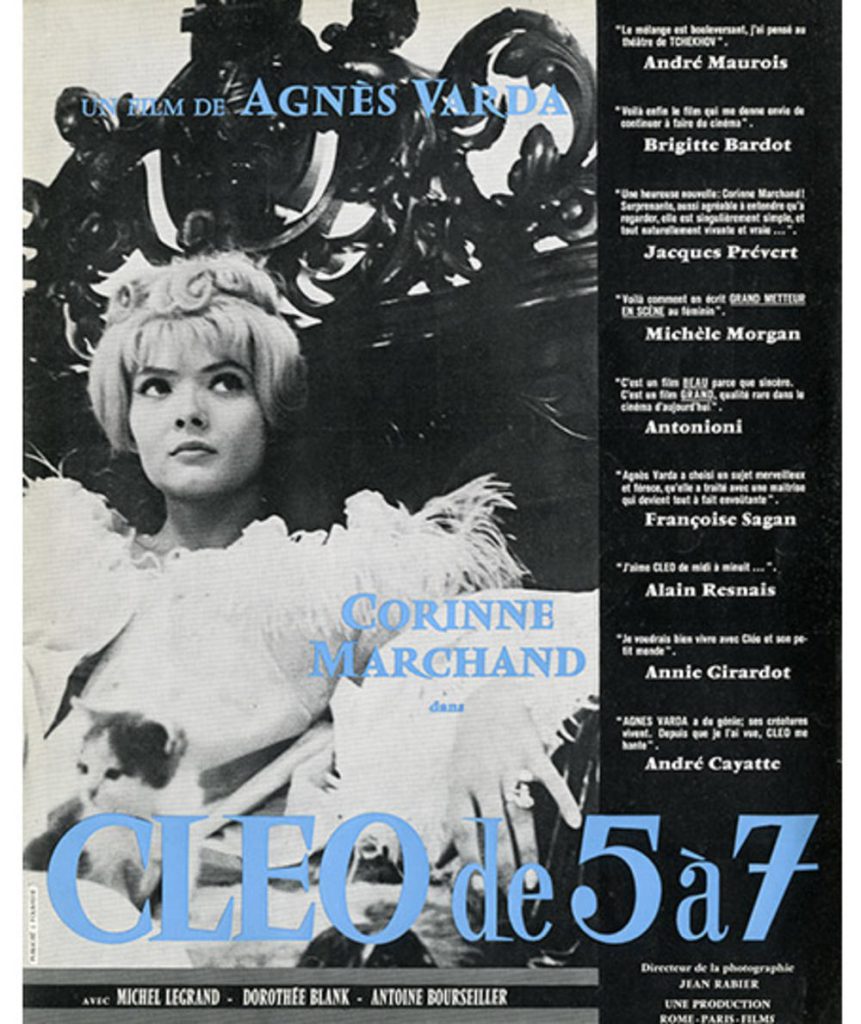
Plot (Spoiler Alert)
At 5pm on June 21, 1961, pop singer Florence “Cléo” Victoire (Corinne Marchand) gets a fortune-teller to tell her future with tarot cards. She is going to hear the results of the test for cancer from a doctor at 6:30pm. The fortune-telling result shows an unfortunate sign that implies her death. Cléo wails in sorrow.
Cléo meets her maid Angèle (Dominique Davray) at a café, and tells her the results of the tarot card reading, claiming that if it is cancer, she will kill herself.
Cléo stops at a hat store with Angèle, and buys an out-of-season black fur hat.
Cléo and Angèle take a taxi home. They have a conversation with the female taxi driver.
Cléo’s lover, José (José Luis de Vilallonga) visits Cléo’s home. Cléo doesn’t tell him about her illness. He leaves early because he is busy at work.
Composer Bob (Michel Legrand) and lyricist Maurice (Serge Korber) come to her home for the rehearsal of her new song.
Bob plays the piano, and Cléo sings the new song, but she doesn’t like the song, and becomes frustrated with her job. She leaves them behind in her home and goes out alone.
On the way to a café, Cléo sees a street performer swallowing frogs alive and spitting them out.
She plays one of her songs at a jukebox in the café, but no one seems to be conscious of the music.
Cléo goes to a sculpting studio to visit her old friend Dorothée (Dorothée Blanck), who works as a nude model.
Dorothée puts Cléo in the car of her lover Raoul (Raymond Cauchetier), a projectionist, and heads to his projection booth to deliver a 35mm film to Raoul. In the car, Cléo tells Dorothée about her possible cancer.
Cléo and Dorothée watch a short silent comedy film at the projection booth.
Cléo and Dorothée take a taxi. Having dropped Dorothée off at her apartment, Cléo gets out of the taxi in Parc Montsouris.
By a bridge on a river, Cléo meets Antoine (Antoine Bourseiller), a soldier on leave from the Algerian War. Antoine is a talkative man, and he talks endlessly to her.
Antoine says that he has finished his three week holiday and he is going to rejoin his army unit tonight.
Cléo talks to him about her possible cancer. Antoine talks to her about his fear of death in war.
Antoine suggests that she should go to the hospital with him by bus to hear the test results.
Cléo and Antoine take the bus to Pitié-Salpêtrière Hospital. They have a discursive conversation in the bus.
In the hospital, the doctor tells Cléo that she has cancer and will need to undergo two months of radiotherapy. She faces the test results with hope. Antoine sheds tears, but Cléo is freed from fear, and feels happy strangely.

